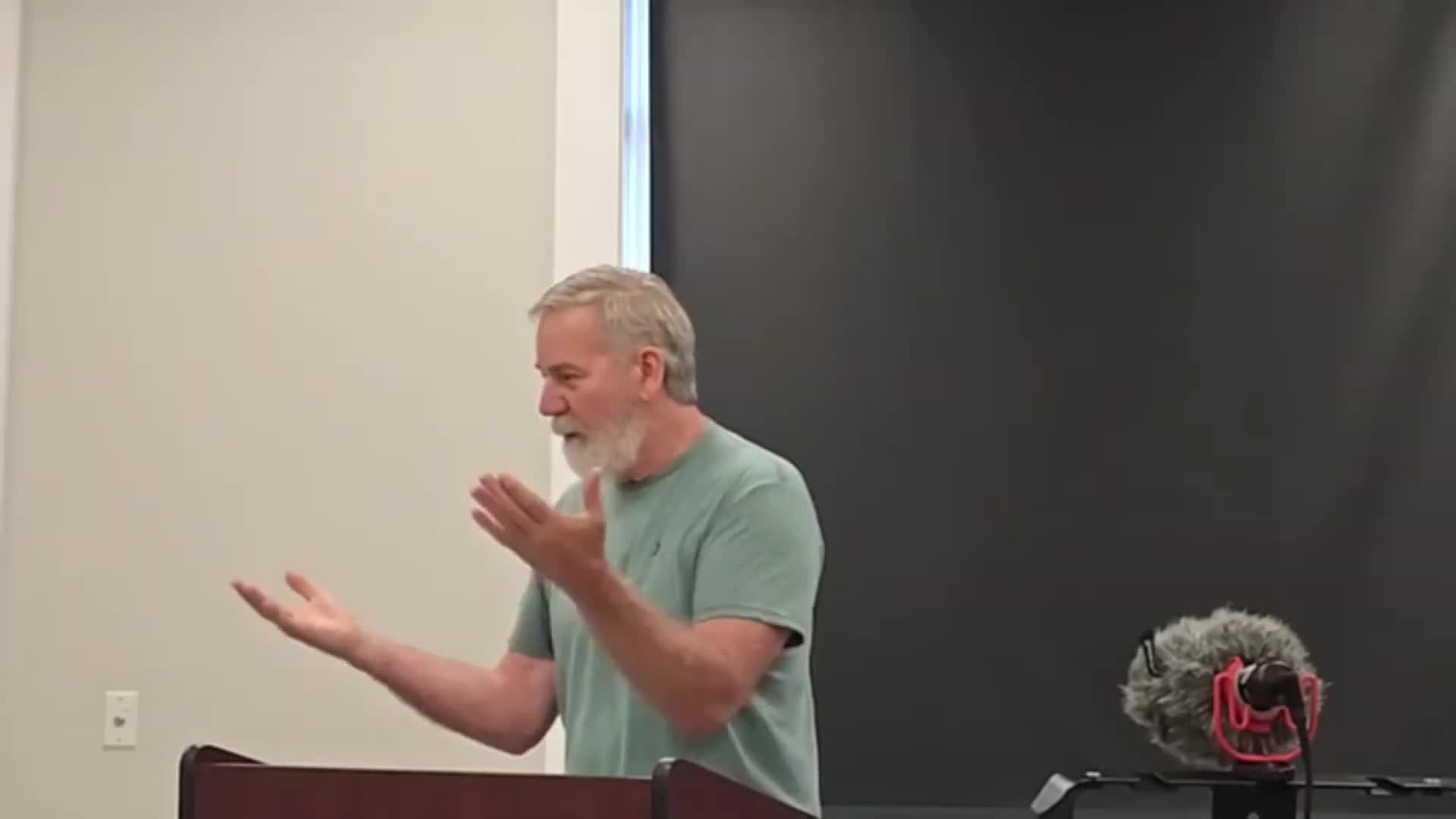Residents Oppose Proposed Subdivision in Rural New Smytheville Area
September 10, 2025 | Nelson County, Kentucky
This article was created by AI summarizing key points discussed. AI makes mistakes, so for full details and context, please refer to the video of the full meeting. Please report any errors so we can fix them. Report an error »

The Nelson Fiscal Court meeting held on September 2, 2025, focused on a public hearing regarding a proposed zoning change from Zone 1 Agricultural to A1-PUD (Planned Unit Development) in Nelson County, Kentucky. This change has sparked significant concern among local residents, who voiced their apprehensions about the potential impacts on the community.
During the meeting, several residents raised issues related to environmental and infrastructural challenges posed by the proposed development. One resident highlighted the presence of sinkholes on their property, questioning the feasibility of septic systems in the area. Concerns were raised about the clustering of septic tanks and the risk of groundwater contamination, particularly given the hilly terrain and existing drainage issues. The resident emphasized that the proposed development could exacerbate runoff problems, potentially leading to flooding in nearby creeks.
Another speaker, Charles DeWitt, expressed his opposition to the zoning change, likening the proposal to a subdivision that would disrupt the rural character of the area. He pointed out that the existing roads are narrow and often congested with agricultural traffic, raising safety concerns for emergency vehicles. DeWitt also mentioned the limitations of the local water supply infrastructure, arguing that it would not adequately support the additional homes proposed in the development.
The discussions highlighted a broader tension between development and preservation in rural areas. Residents voiced a strong desire to maintain the agricultural zoning, arguing that the proposed changes would not benefit the community and could lead to significant environmental and safety issues.
As the meeting concluded, the court was left to consider the residents' concerns and the implications of the proposed zoning change. The outcome of this decision will likely have lasting effects on the community's character and environmental health, as residents continue to advocate for the preservation of their rural landscape. The court's next steps remain to be seen, as they weigh the potential benefits of development against the voiced concerns of the community.
During the meeting, several residents raised issues related to environmental and infrastructural challenges posed by the proposed development. One resident highlighted the presence of sinkholes on their property, questioning the feasibility of septic systems in the area. Concerns were raised about the clustering of septic tanks and the risk of groundwater contamination, particularly given the hilly terrain and existing drainage issues. The resident emphasized that the proposed development could exacerbate runoff problems, potentially leading to flooding in nearby creeks.
Another speaker, Charles DeWitt, expressed his opposition to the zoning change, likening the proposal to a subdivision that would disrupt the rural character of the area. He pointed out that the existing roads are narrow and often congested with agricultural traffic, raising safety concerns for emergency vehicles. DeWitt also mentioned the limitations of the local water supply infrastructure, arguing that it would not adequately support the additional homes proposed in the development.
The discussions highlighted a broader tension between development and preservation in rural areas. Residents voiced a strong desire to maintain the agricultural zoning, arguing that the proposed changes would not benefit the community and could lead to significant environmental and safety issues.
As the meeting concluded, the court was left to consider the residents' concerns and the implications of the proposed zoning change. The outcome of this decision will likely have lasting effects on the community's character and environmental health, as residents continue to advocate for the preservation of their rural landscape. The court's next steps remain to be seen, as they weigh the potential benefits of development against the voiced concerns of the community.
View full meeting
This article is based on a recent meeting—watch the full video and explore the complete transcript for deeper insights into the discussion.
View full meeting
